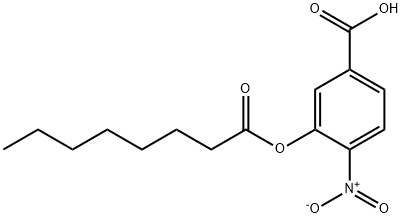MELITTIN
- CAS NO.:20449-79-0
- Empirical Formula: C131H229N39O31
- Molecular Weight: 2846.46
- MDL number: MFCD00076868
- EINECS: 629-303-1
- SAFETY DATA SHEET (SDS)
- Update Date: 2024-11-19 23:02:33

What is MELITTIN?
The Uses of MELITTIN
Melittin has been used in standard bacterium-killing assay to determine bactericidal activity and study the role of melittin in allergic reactions.
The Uses of MELITTIN
Melittin from honey bee venom has been used:
- In 3-(4, 5-dimethyl thiazol-2-yl)-2,5diphenyl tetrazolium bromide (MTT) assay to determine its cytotoxicity effect on the growth of human cell lines.
- To study the anti-microbial activity of melittin on the growth of Borrelia burgdorferi in in vitro conditions.
- As a positive control in hemolysis assay and as a cytotoxic agent against HeLa cells.
Definition
ChEBI: A 26-membered polypeptide consisting of Gly, Ile, Gly, Ala, Val, Leu, Lys, Val, Leu, Thr, Thr, Gly, Leu, Pro, Ala, Leu, Ile, Ser, Trp, Ile, Lys, Arg, Lys, Arg, Gln and Gln-NH2 residues joined in sequence. It is the principal active com onent of bee venom.
General Description
Chemical structure: peptide
Biochem/physiol Actions
Melittin acts as an anti-coagulating protein by increasing the time of blood clotting in vitro. Melittin inhibits the activity of S100 calcium-binding protein B (S100B) and plays a vital role in Epilepsy treatment. Melittin retard cathepsin S-induced invasion, proliferation and angiogenesis via inhibition of the vascular endothelial growth factor A (VEGF-A) /VEGF receptor 2 (VEGFR-2)/ mitogen-activated protein kinase 1 (MEK1)/ extracellular signal-regulated kinase 1/2 (ERK1/2) pathway in human MHCC97-H cells (liver cancer cells). Melittin has therapeutic application in various inflammatory diseases such as skin inflammation, neuroinflammation, atherosclerosis, arthritis and liver inflammation. Accumulated melittin degrades phospholipid packing in the cell membrane and causes cell lysis and cell death.
storage
Store at -20°C
Properties of MELITTIN
| alpha | D21 -89.52° (c = 0.409) |
| Density | 1.39 |
| storage temp. | -20°C |
| solubility | Soluble to 1 mg/ml in 20% acetonitrile |
| form | White to faint tan powder. |
| color | White to off-white |
| Water Solubility | Soluble to 1 mg/ml in water |
Safety information for MELITTIN
| Signal word | Danger |
| Pictogram(s) |
 Skull and Crossbones Acute Toxicity GHS06 |
| Precautionary Statement Codes |
P264:Wash hands thoroughly after handling. P264:Wash skin thouroughly after handling. P270:Do not eat, drink or smoke when using this product. P280:Wear protective gloves/protective clothing/eye protection/face protection. P301+P310:IF SWALLOWED: Immediately call a POISON CENTER or doctor/physician. |
Computed Descriptors for MELITTIN
| InChIKey | VDXZNPDIRNWWCW-JFTDCZMZSA-N |
New Products
Tert-butyl bis(2-chloroethyl)carbamate 4-Methylphenylacetic acid N-Boc-D-alaninol N-BOC-D/L-ALANINOL 3-Morpholino-1-(4-nitrophenyl)-5,6-dihydropyridin- 2(1H)-one Furan-2,5-Dicarboxylic Acid Tropic acid 1,1’-CARBONYLDIIMIDAZOLE DIETHYL AMINOMALONATE HYDROCHLORIDE R-2-BENZYLOXY PROPIONIC ACID 1,1’-CARBONYLDI (1,2-4 TRIAZOLE) N-METHYL INDAZOLE-3-CARBOXYLIC ACID (2-Hydroxyphenyl)acetonitrile 4-Bromopyrazole 5-BROMO-2CYANO PYRIDINE 5,6-Dimethoxyindanone 5-broMo-2-chloro-N-cyclopentylpyriMidin-4-aMine 2-(Cyanocyclohexyl)acetic acid 4-methoxy-3,5-dinitropyridine 2-aminopropyl benzoate hydrochloride 1-(4-(aminomethyl)benzyl)urea hydrochloride diethyl 2-(2-((tertbutoxycarbonyl)amino) ethyl)malonate tert-butyl 4- (ureidomethyl)benzylcarbamate Ethyl-2-chloro((4-methoxyphenyl)hydrazono)acetateRelated products of tetrahydrofuran








You may like
-
 Melittin from honey bee venom CASView Details
Melittin from honey bee venom CASView Details -
 1975-50-4 98%View Details
1975-50-4 98%View Details
1975-50-4 -
 2-HYDROXY BENZYL ALCOHOL 98%View Details
2-HYDROXY BENZYL ALCOHOL 98%View Details
90-01-7 -
 2-Chloro-1,3-Bis(Dimethylamino)Trimethinium Hexafluorophosphate 221615-75-4 98%View Details
2-Chloro-1,3-Bis(Dimethylamino)Trimethinium Hexafluorophosphate 221615-75-4 98%View Details
221615-75-4 -
 61397-56-6 CIS BROMO BENZOATE 98%View Details
61397-56-6 CIS BROMO BENZOATE 98%View Details
61397-56-6 -
 14714-50-2 (2-Hydroxyphenyl)acetonitrile 98+View Details
14714-50-2 (2-Hydroxyphenyl)acetonitrile 98+View Details
14714-50-2 -
 118753-70-1 98+View Details
118753-70-1 98+View Details
118753-70-1 -
 733039-20-8 5-broMo-2-chloro-N-cyclopentylpyriMidin-4-aMine 98+View Details
733039-20-8 5-broMo-2-chloro-N-cyclopentylpyriMidin-4-aMine 98+View Details
733039-20-8